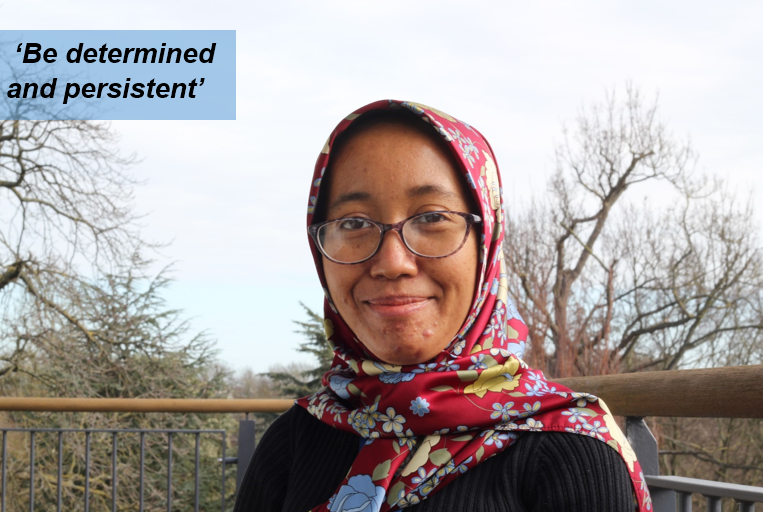An Interview with Dr Dewi Safitri
Dr Dewi Safitri is a postdoctoral researcher within the Ladds’ laboratory in the Department of Pharmacology and an affiliated postdoctoral researcher at Trinity College, Cambridge. Originally from Indonesia, Dewi moved to Cambridge to study for a PhD.
During her studies within the Department, Dewi has been incredibly successful publishing four scientific manuscripts and receiving three scientific awards from the Indonesian government.
Who are you and what do you work on?
My name is Dewi and I am working as a postdoc in Graham Ladds’ group focusing on GIPR (Gastric inhibitory polypeptide receptor) signalling and how accessory proteins affect the signalling of this receptor.
What do you love about your job?
Trying new techniques and technologies to learn more about receptors and the excitement of discovering new results.
How/why did your research lead you to Cambridge?
It was a little bit of a roller coaster ride, if I may say. I did my undergraduate and master’s degree in Indonesia through fast-track programme (combined undergrad and master’s degree). Luckily, most of my undergrad courses started in the morning and the master’s programme began after lunch. Although I was occupied all day, I was excited because the course enabled to me to obtain comprehensive knowledge and I managed to learn some key skills in development of pharmacological methods and molecular biology techniques. Even during my studies there, I was always wondering how the receptors work at the molecular level so I decided to apply for a PhD in Cambridge. Before applying to PhD programme in the Department of Pharmacology, I took intense course to improve my English and I obtained a scholarship from Indonesian government. After putting in more efforts and with some hurdles that happened to me in the very beginning, I finally managed to find my way to the Ladds’ lab, that is a world leader in the field of receptor pharmacology.
Other than science what is most important for you in life?
Family and being surrounded by people whom I love.
Do you have any advice to early-career women scientists?
Be determined and persistent. Look for the PI who can guide you to improve personally and professionally and encourage you to do the very best science. It is imperative to be in the environment that nourishes your desire to explore, to be surrounded by people who can provide constructive feedback, and work as a team.
Did you have to face any hurdles as a woman in science?
Before coming here, I lived in a society where it was atypical for women to be independent, attend higher education, and carry out research. I was lucky that my mom kept encouraging me to have high aspirations. I remember while applying to the PhD at Cambridge that some people from my previous workplace discouraged me from applying and believed I would not get it. However, there is always a possibility of failure and if you don’t try you will for sure not be successful. I prepared and gave it a go and have never looked back. I hope I can be an example to young Indonesian women and show that they can make their own choices surrounding their education and independence.
What/Who first sparked your interest in Science?
My interest in science was firstly ignited when I was a child. I found a book in the library that was full of experiments using simple tools and household items. I excitedly took the book home, and one particular experiment that I vividly remember trying was making a triangular prism. I remember running a number of trial runs (like all the best scientists!) and after a bit of persistence, it finally worked. I remember being so amazed, and at the time, I promised myself to do more! Twenty years on, I am still being amazing by the novel results I produce, though perhaps they are not always a beautiful rainbow of colours.
What female scientist do you most admire and why?
Lesley McVinnish- what an amazing women! I first met Lesley shortly after arriving in Cambridge and she helped me when I had a minor issue with my studies. Subsequently, Lesley opened my eyes to a world of possibilities and encourage me to stand up and pursue what I really wanted to do. Thank you Lesley.
How do you relax?
Taking care of my plants (most of them are orchids) makes me happy. If the weather is nice, I also go out to take photos of the beautiful surrounds in Cambridge.

